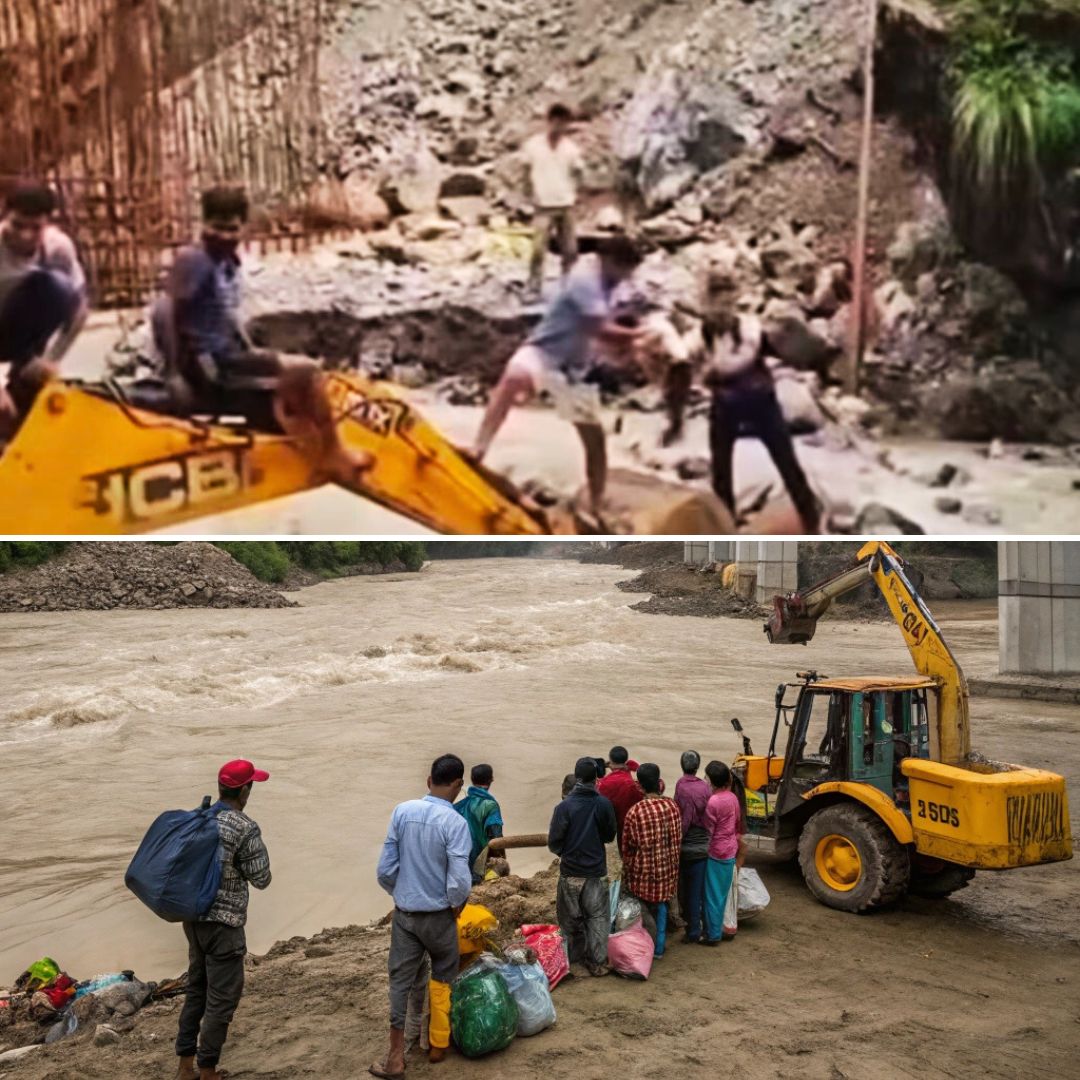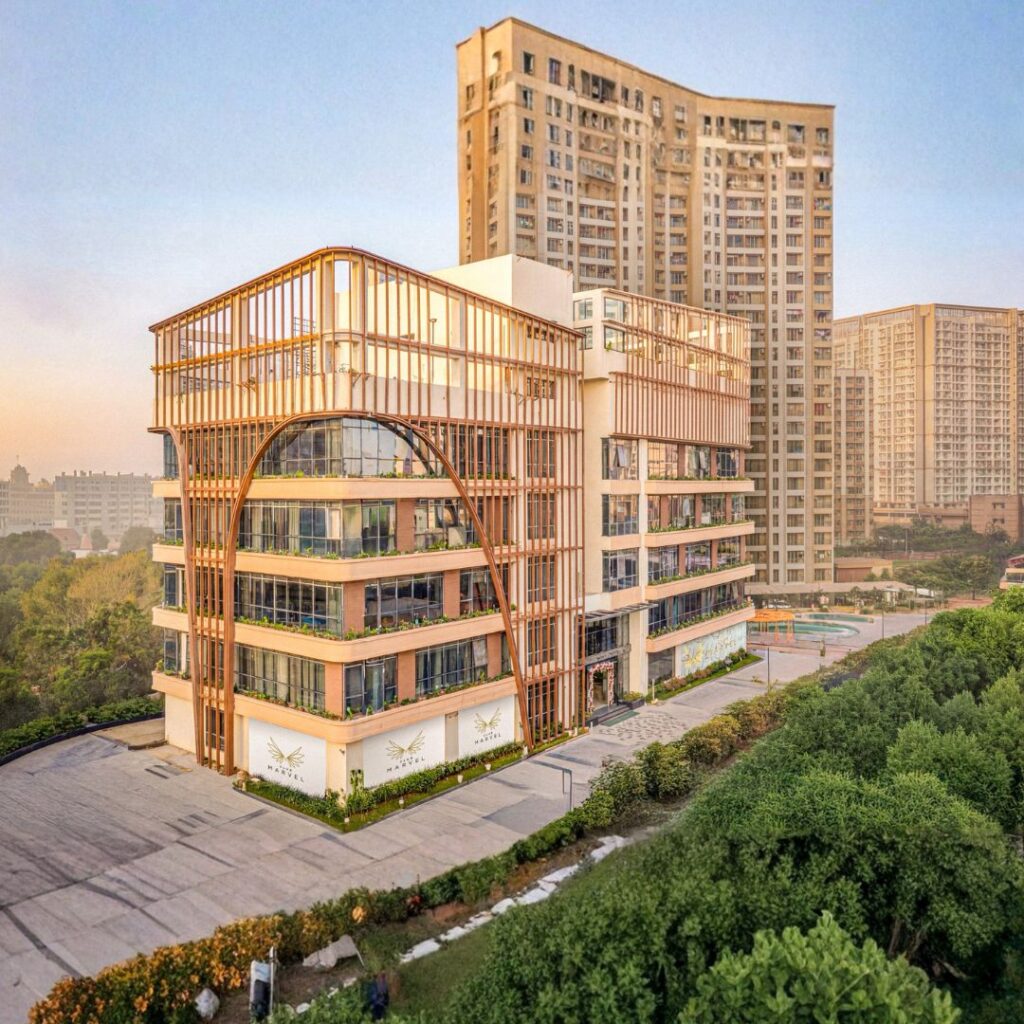In Tehri district, Uttarakhand, the unfinished Rangad bridge continues to leave over 15 villages isolated and vulnerable, despite a ₹2 crore investment and a missed July 2022 completion deadline.
Residents, including children and the elderly, are forced to cross the river using JCB excavators, risking their lives daily.
While the government has announced new infrastructure plans, there is still no clear timeline for the bridge’s completion, intensifying frustration among villagers and raising concerns about accountability and governance.
Daily Struggles: Villagers Endure Danger and Disruption
For the people of Rangad and surrounding villages, the absence of a functional bridge has turned routine activities into hazardous undertakings. Children must brave risky river crossings to attend school, while patients needing urgent medical care face life-threatening delays.
Farmers and traders are unable to transport goods efficiently, impacting local livelihoods and the rural economy. “We have lost count of the number of times we have pleaded with officials. Every monsoon, the river swells and the danger multiplies.
Yet, we have no option but to use JCBs or makeshift rafts,” said Sunita Devi, a local resident. The lack of reliable infrastructure has also led to social isolation, with families unable to visit relatives or participate in community events, further eroding the social fabric of these villages.
Unkept Promises: Official Responses and Budget Updates
Despite the allocation of ₹2 crore and repeated assurances from authorities, the Rangad bridge remains a distant dream. In the latest 2025 state budget, the Uttarakhand government announced plans for 37 new bridges and increased funding for rural connectivity.
However, progress on the Rangad bridge is still mired in bureaucratic delays, with the project reportedly stuck in survey and tendering stages. When questioned, district officials cited “technical and administrative hurdles” but failed to provide a revised completion date or a transparent update on the utilisation of funds.
This lack of communication has fuelled distrust among villagers, who feel neglected and unheard. “We see announcements and headlines about new projects, but our bridge is still missing. Where has the money gone?” asked Ramesh Singh, a community leader.
Community Neglected: Implications and Accountability
The continued delay of the Rangad bridge is not an isolated incident but reflects a broader pattern of stalled infrastructure projects in remote and rural India. Such delays disproportionately affect the most vulnerable, deepening inequalities and hampering access to basic rights.
Experts warn that without timely intervention, the region risks further depopulation as families migrate in search of safer, better-connected areas. Civil society groups have begun to raise the issue at state and national forums, demanding greater transparency in project implementation and stricter monitoring of public works.
The story of Rangad’s missing bridge is a wake-up call for policymakers to prioritise the needs of marginalised communities and ensure that development reaches the last mile.
The Logical Indian’s Perspective
The plight of Rangad’s villagers is a stark reminder that infrastructure is not just about concrete and steel, but about dignity, opportunity, and hope. The Logical Indian stands in solidarity with the affected communities and urges the government to act with urgency, transparency, and empathy.
It is time for authorities to move beyond announcements and deliver on their promises, ensuring that no village is left behind. As citizens, how can we strengthen local voices and demand greater accountability in public works?











